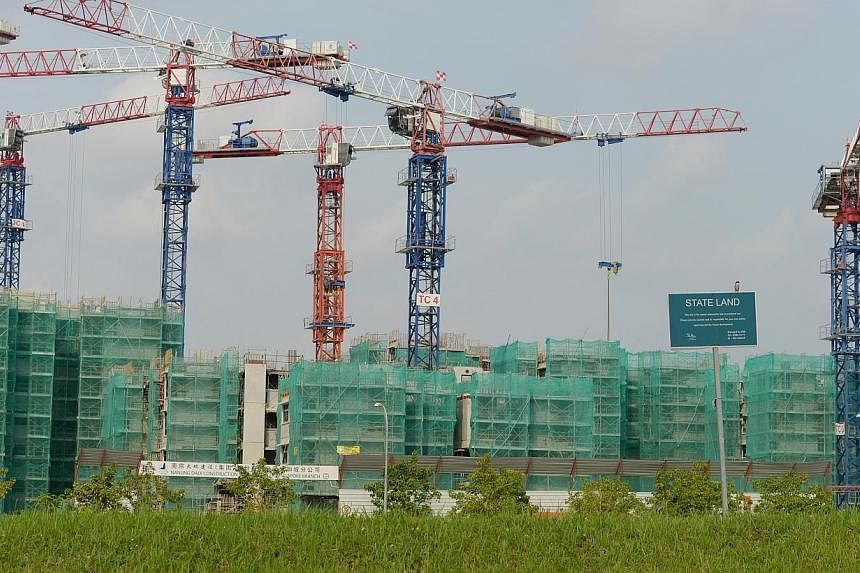SINGAPORE - Imagine an apartment block built by stacking separate rooms together, complete with finishings and fittings. That is how a new executive condominium at Canberra Drive will be assembled, using an advanced construction method that is expected to raise productivity by more than 40 per cent.
The use of such time-saving technologies is what the Government hopes to encourage in the construction sector. So it is rolling out new precast facilities and training programmes, and a $55 million top-up to the Construction Productivity and Capability Fund.
Minister in the Prime Minister's Office Grace Fu announced these moves at the launch of the Building and Construction Authority's annual Singapore Construction Productivity Week on Tuesday morning.
She noted that construction worksite productivity has improved by only about 1.2 per cent each year from 2010 to 2013, below the Government's target of 2 to 3 per cent annually.Ms Fu set out three ways to improve productivity: making prefabrication more prevalent, raising the quality of the workforce and having greater integration across the construction value chain.
"Prefabricated prefinished volumetric construction", to be used in the new executive condominium by City Developments, is one technology which the Government hopes to encourage. It aims to have 40 to 50 projects adopt this and other technologies in the next five years, partly by requiring their use in selected Government Land Sales sites this year, as earlier announced.
To support this, the Government is allocating another $55 million to the Construction Productivity and Capability Fund, bringing its total to $335 million. More than two-thirds of this has already been committed.
Two new integrated construction and precast hubs will also be built at Kaki Bukit, to be operational by the middle of next year and 2016. The BCA will also roll out more precast hub sites for tender at Defu Industrial Estate in coming months.
To improve the workforce, the BCA Academy is introducing two new courses in construction productivity early next year: a five-month specialist diploma and a two-month advanced certificate. By January 2016, contractors registered under BCA must have at least one full-time professional and technical employee who has completed one of the two courses.
The BCA is also in talks with the industry on additional measures to help firms send workers for training, including funding support, and attracting locals into the industry, added Ms Fu.
As for greater integration along the value chain, Building Information Modelling is "a key enabler", said Ms Fu. This is the use of 3D computer models at various stages of the building process.
Ideas on Singapore's productivity drive were also contributed at the third International Panel of Experts meeting, held here from October 9 to 10.
The 19 experts' recommendations included a greater emphasis on manufacturing components off-site before installation, which improves productivity and makes for a more conducive working environment which could attract locals.
The panel also suggested incentives for firms to adopt new technologies, and recommended more industry-led research and development.
These ideas will be drawn upon for the second Construction Productivity Roadmap, to be unveiled next year, said BCA chief executive officer John Keung.


